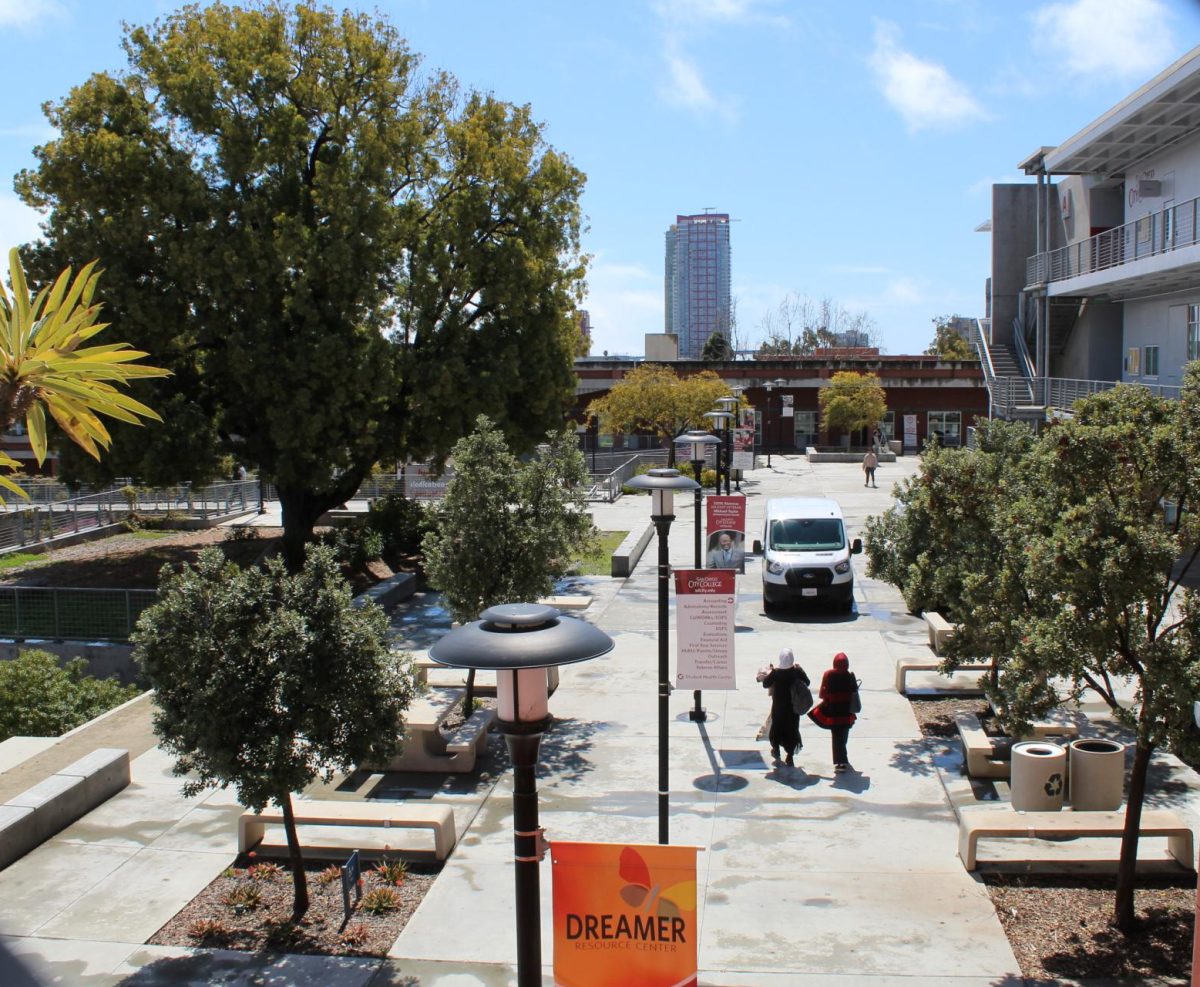“For every dollar California invests in public higher education they receive a net-return of $4.50,” according to California Community Colleges Acting Chancellor Erik Skinner. (Brice Harris was announced as the new chancellor on Sept. 27).
In a teleconference Sept. 26 the California Community College Chancellors Office said that the budget for the 2012-13 year is dependent on the passage of Proposition 30.
The system has faced $809 million in reductions since the 2008-09 school year and California community colleges have had a 17 percent reduction in enrollment, amounting to about 485,000 students, according to Skinner.
If Prop. 30 fails in November, an additional $330 million in education cuts will be made, affecting not only California community colleges, but also K-12, CSU and UC schools.
California has experienced record-breaking high school graduation class sizes in recent years in addition to staggering unemployment rates and the return of veterans from Iraq and Afghanistan. Skinner said all of these factors drive up the demand for community college education.
“We really believe that this mismatch between resources and demand is the most pressing public policy and social issue that California is facing today,” said Skinner, “Are we going to provide access to the next generation to access higher education?”
Dan Troy, vice chancellor of fiscal policy, explained that $5.9 billion dollars statewide are contingent on the passage of Prop. 30.
“That’s $250 million each for UC and CSU. That’s about $5.4 billion for K-14 education,” said Troy.
California community colleges would receive about $210 million in new money, providing room for an estimated 20,000 additional students in the 2012-13 year.
If Prop. 30 fails, Troy said “We will be hit with a mid-year trigger-cut of about $338 million in addition to losing the $210 million in new money we would get if it passed. If you put those two figures together the entire swing of the ballot initiative is almost $550 million for the community colleges alone.”
According to Troy, about 180,000 students will be lost in community colleges alone if the proposition fails.
Proposition 38, also known as “the Munger Initiative,” also jeopardizes the passage of Prop. 30. While it would also raise taxes for education, funds would only benefit K-12 and as it stands, both propositions cannot take effect if passed.
“If both Prop 38. and Prop 30. pull over 50 percent, the initiative that receives more votes will prevail,” said Troy.
Rich Copenhagen, president of student senate for California community colleges, pointed out that the reduction in course section offerings results in larger class sizes to compensate, lowering the class quality.
Budget cuts result in loss of part-time faculty as well as student services. Copenhagen spoke of a student who was left homeless after an under-staffed financial aid office was unable to process his application in time.
“It took them a year to get their financial aid check, which is now reduced because of the new the budget,”
“Its not the students who are coming back with a bachelors degree and know the system, its not the students who are coming from a family who has two Ph.D.s and come from a long line of college graduates, they’re not the ones who are being hurt as much as the students who need the support,” said Copenhagen.
Childcare is another service lost or cut at many campuses because of budget cuts, and without it many students are not able to attend classes. With the loss of special services, students who need help the most are being pushed out of higher education.
“Right now it’s not a matter of politics and whether or not you agree with taxing a little bit more on this person or that person. This tax proposal is a very clear step in the right direction in order to preserve the institutions that make California function.” said Copenhagen.
A distinction Skinner made is that Prop. 30 will not restore cuts that have already been made.
“It stops the bleeding, but doesn’t heal the patient,” he said.








